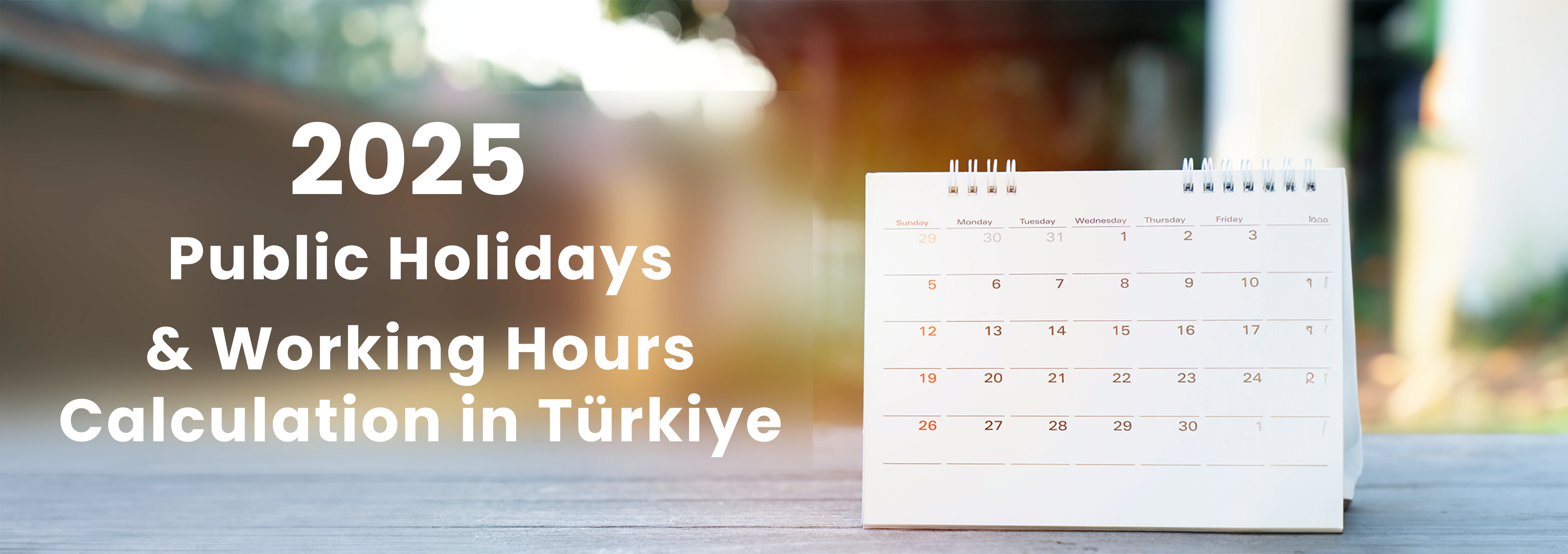21 February 2024
Intermediate Rest Break Periods and Implementation Principles under the Labor Law

The purpose of the Labor Law No. 4857 is explained in the first article as "to regulate the working conditions and work-related rights and obligations of employers and employees working under an employment contract". In line with this purpose, the law has set forth many provisions. One of the rights regulated by the Law is the right to rest break, which is included in Chapter 4 of the Law titled "Organization of Work". Here, the rest period to be used by employees during working hours is regulated. Rest break is a legal right that employees use during working hours. Article 68 entitled "rest breaks" regulating this right is as follows:
Rest Breaks
Article 68 - "Employees shall be allowed a rest break approximately in the middle of the working day fixed with due regard to the customs of the area and the requirements of the work in the following manner:
- fifteen minutes, when the work lasts four hours or less,
- half an hour, when the work lasts longer than four hours and up to seven and a half hours (seven and a half included),
- one hour, when the work lasts more than seven and a half hours.
These are minimum durations, and the full period must be allowed at each break.
However, these break periods may be split up by contracts where the climate, season, local custom, or nature of the work so requires.
Breaks may be taken at the same or varying times by the employees at the establishment.
The breaks shall not be reckoned as part of the working time."
The importance of rest breaks is too great to be ignored. Employee’s naturally need to meet their needs and rest. When they cannot meet these needs, an unhealthy situation will arise for them. Especially in some jobs that are carried out by using some physical strength, the fact that the worker does not rest at all may cause work accidents caused by fatigue and absent-mindedness. The realisation of this possibility poses a great danger for both the employee and the employer. Because such accidents also cause great losses for employers. It causes them to be penalised and loss of reputation. As we can understand from this example, the issue of interim rest is also important for the employer. The employee who cannot meet his needs and rest will not be able to fulfil his duties properly. Motivation and efficiency will decrease. It should also be added that it would not be a realistic request to expect the employee to work non-stop.
When rest break periods are properly implemented, the employee’s productivity and motivation towards his/her work will increase, resulting in a positive outcome for both the employee and the employer. In addition, since the employee rests, he/she will be able to concentrate more easily and the possibility of work accidents will decrease.
In addition, Article 50 of the Constitution states that "Rest is the right of employees." it has a provision. In other words, the right to rest is a constitutional right. For this reason, it cannot be ignored and this right cannot be taken away from the employee.
The right to rest is also protected by the decisions of the Supreme Court. The right to rest is also protected by the decisions of the Supreme Court. The decision of the 9th Civil Chamber of the Supreme Court with file no 2016/25534 and decision no 2020/11056 "The employee cannot be expected to work continuously without any break during the daily working period. During the day, the employee needs a certain amount of time for needs such as food, tea, cigarettes or to rest." and clarified this issue.
The employee’s will be able to spend the rest break period freely. During this time, he must decide for himself what to do and where to stop. He must act physically and mentally as he pleases. It should be free from any work-related situations. The work will not progress in terms of the worker during this period.
According to the same decision, "The worker is completely free during the rest break time. He can spend this period inside or outside the workplace. If the worker spends this period inside the workplace and continues to work during this period, it is deemed that he/she has not been given a break. However, even if the worker stays at the workplace, he/she can freely use the rest period and cannot be forced to work during this period."
The employee may also spend the rest break period without leaving the workplace. For example, he or she can sit in a reserved chair or armchair, have a snack or use his or her mobile phone during this period. No one can force the worker to work during this period. It should also be noted that if the worker snacks and works at the same time; for example, if he/she checks his/her e-mails, his/her work or designs a programme at the same time, this period cannot be counted as a rest period.
Rest break periods are determined as fifteen minutes for works of four hours or less, half an hour for works of more than four hours and up to seven and a half hours (including seven and a half hours), and one hour for works of more than seven and a half hours.
However, these periods can be increased by labor contracts and collective bargaining agreements. Because the law has determined these periods as "minimum". Especially when the news about working life in Europe is reviewed, news about shortening working hours or increasing rest periods stand out, and these news are also on the agenda in our country. Based on this situation, it is witnessed that rest break periods are increased in companies that want to keep up with the new generation or the global world. This increases the motivation of employees.
In the decision of the 22nd Civil Chamber of the Supreme Court with file no 2017/32120 and decision no 2018/1371 "In practice, daily working hours exceeding seven and a half hours are encountered. According to the provision of Article 63 of the Labor Law, since the daily working time cannot exceed eleven hours, it should be accepted that the minimum one-hour rest period for work exceeding seven and a half hours determined by Article 68 is related to work up to eleven hours per day. In other words, for work up to eleven hours a day (including eleven hours), the rest break period should be at least one hour, and for work over eleven hours, it should be at least one and a half hours." With this statement, the employee’s right to rest break is protected in an equitable manner. If the employee has to work more than eleven hours, the rest break period should also be extended.
As a rule, rest break periods should be continuous. The decision of the 9th Civil Chamber of the Supreme Court with file no 2020/7412 and decision no 2020/15773 on this subject "In the second paragraph of Article 3 of the Regulation on Working Hours Regarding the Labor Law, it is ruled that the rest break periods will be given by taking into account the climate, season, local customs and the nature of the work, taking into account the uninterrupted twelve-hour rest period within twenty-four hours. In the first paragraph of the aforementioned article, it is explained that the rest period shall not be counted as working time." With this statement, it points to the Regulation on Working Hours Regarding the Labor Law (In Turkish). This provision is stipulated in the aforementioned regulation as well as in the Labor Law.
In the decision of the 9th Civil Chamber of the Supreme Court with file no 2020/8196 and decision no 2020/18148. "Although it is mandatory to use the rest break, determining the time to use it is related to the employer's management right. It is possible for all employees to use the rest break period at the same time, or it is possible for them to use it alternately within a certain plan." statement is included. In some jobs, there are electronic devices and machines that need to be kept at a standstill. In order for these machines to continue working, rest break periods can be used in this way. In addition, a market will ensure that the customer can always reach an employee by using rest periods in this way. The most important example related to this subject will be the use in order within the plan to be implemented in hospitals. Since human health and even life is at stake here, it is extremely natural for health workers to plan the use of rest breaks in order.
The same decision also states that "However, it would not be correct to use the rest period in the form of starting work as late as the rest break period or leaving work as early as the rest break period. The rest break period should be used at a certain time during the daily work in a purposeful manner." This is a statement that protects the rest of the employee during the working period. Even if the employee does not use his/her right to rest and leaves work early, this situation will lead to negativities in the long term, both in terms of the progress of the work and the employee’s health and efficiency in his/her work. At the same time, a result contrary to the law will occur.
As regulated in the article of the law, the rest break period is not counted as working time. Because the employee does not engage in any activity related to his/her work during this period. For this reason, no wage will be paid for breaks. In the decision of the 22nd Civil Chamber of the Supreme Court with file no 2016/16805 and decision no 2019/14373 "No wage is required to be paid for rest break. However, if this period is not recognised as a rest time, the worker's normal wage must be paid. If this period exceeds forty-five hours per week, an increased wage must be paid." and the wage issue is explained.
As in various decision texts, as well as in the decision of the 9th Civil Chamber of the Supreme Court with file no 2020/8196 and decision no 2020/18148 "The employee cannot be expected to work uninterruptedly without any break during the daily working period. During the day, the worker needs a certain amount of time for needs such as food, tea, cigarettes or to rest." In the statement, needs such as "tea, cigarettes" draw attention. In some workplaces, there are situations where employees who do not consume products such as tea and cigarettes cannot use their rest breaks compared to employees who consume them, and their use is not welcomed compared to others. As we have already emphasised, since it is at the disposal of the worker what to do during rest breaks, such situations are absolutely contrary to this right. It is unacceptable to directly or implicitly prevent rest breaks due to the lack of such utilisation.
CONCLUSION
The Labor Law, which is very sensitive in protecting the rights of employees, has maintained this sensitivity regarding the rest break periods. This attitude has been supported by various judgements. By acting in accordance with the provisions of the law and the decisions of the Supreme Court on rest break periods, employers will protect themselves and their reputations, as well as ensuring the continuation of the motivation and efficiency of their employees and ensuring that their business runs smoothly. This provision is very important for the protection of both the physical and mental health of the employee. For these reasons, the use of rest break periods should not be avoided and the forms of use indicated by the law should not be neglected.
Should you have any queries or need further details, please contact us.
Notification!






